Choosing the right door for your home is a crucial decision that affects not only aesthetics but also security, insulation, and maintenance. In this blog, we will explore the essential differences between composite doors and uPVC doors, helping you make an informed choice that suits your home’s unique requirements.
Post your Requirement
What Are Composite Doors?
Composite doors are constructed using a mix of different materials, including a steel frame, a timber core, and an insulated foam layer. These materials are glued together and then covered with Glass Reinforced Plastic (GRP) to make a strong and weather-resistant door. They are made under high-pressure conditions to ensure durability and security.
What Are uPVC Doors?
uPVC doors are made by enclosing an insulated steel frame with un-plasticized polyvinyl chloride (uPVC). This creates a strong and thermally efficient door. While uPVC doors may have a somewhat plastic-like appearance, they are an affordable and effective solution for securing your home stylishly. They offer both strength and energy efficiency.
Types Of uPVC Doors
Below we have mentioned types of uPVC Doors
- Upvc Sliding Doors: uPVC sliding doors are a practical, weather-resistant choice for both interior and exterior use. Their unique horizontal sliding motion is space-efficient and allows for large glass panels, maximizing natural light. With robust security features, these doors offer insulation, energy efficiency, and easy maintenance.
- Upvc French Doors: uPVC French doors combine timeless elegance and functionality. Featuring a double-door design with hinged panels, they offer a classic look and abundant natural light. Advanced security, along with multiple design options, makes them a versatile choice for various architectural styles.
- uPVC Casement Doors: uPVC casement doors provide practicality and durability with a traditional hinged design. Single or multiple panels, glass integration, and versatile configurations offer flexibility in design. These doors, common in both residential and commercial spaces, are secure and easy to maintain.
- Upvc Folding Door: uPVC folding doors are known for their space-saving folding mechanism, allowing wide, unobstructed openings. Featuring large glass panels and versatile configurations, these doors create seamless indoor-outdoor connections. Their space-efficient design is ideal for areas with limited space.
- uPVC Tilt and Slide doors: uPVC tilt and slide doors offer dual modes of operation for ventilation and access. They provide security, energy efficiency, and low maintenance. Ideal for connecting indoor and outdoor spaces, they enhance thermal insulation, contributing to energy efficiency.
- uPVC Lift and Slide doors: uPVC lift and slide doors incorporate a unique mechanism for effortless operation. With large glass panels, advanced security features, and excellent energy efficiency, they enhance indoor-outdoor connections while withstanding various climates.
- uPVC Slide and Fold doors: uPVC slide and fold doors provide flexible control over access points and ventilation. Their space-saving design neatly stacks panels when fully open. Large glass panels, energy-efficient options, and customization make them suitable for various layouts and designs.
uPVC Doors vs. Composite Doors
When choosing a doors for your home, it’s essential to consider both appearance and durability. In this section, we’ll explore the benefits of composite doors and uPVC doors to help you decide which one is better for your home.
uPVC Doors:
- Low Maintenance: uPVC doors are easy to clean and maintain, requiring minimal effort to keep them looking new.
- Weather Resistant: They are highly weather-resistant and don’t need much maintenance.
- Long Lifespan: uPVC doors are durable and offer long-lasting performance, making them a one-time investment.
- Stability: They don’t change shape or warp over time, ensuring they stay in good condition.
- Customization: You can choose the color and style that suits your preferences.
- Security Features: uPVC doors come with advanced security features, including point locks, for enhanced safety.
- Energy Efficiency: They are energy-efficient, helping you save on cooling and heating costs.
Composite Doors:
- Materials Mix: Composite doors combine various materials, making them strong and durable.
- Weatherproof: They are resistant to weather conditions and remain secure.
- Low Maintenance: Composite doors don’t peel, crack, or require extensive maintenance.
- Thermal Efficiency: They are thermally efficient, contributing to energy cost savings.
- Strength: Composite doors are thick and robust, capable of withstanding external forces.
- Aesthetics: They resemble authentic timber doors, which can be visually appealing.
Which Door You Should Choose?
Below we have stated some of the factors to be considered while deciding which door can be a perfect fit for your home:
Cost:
- Composite doors are pricier but offer better insulation and security.
- uPVC doors are cost-effective but may lack some features.
Maintenance:
- Composite doors need less upkeep, suitable for busy households.
- uPVC doors may require more maintenance.
Insulation:
- Composite doors provide superior insulation, enhancing energy efficiency.
- uPVC doors may not insulate as effectively.
Security:
- Composite doors are generally more secure due to their strong construction.
- uPVC doors can be secure but may not match the security of composites.
Style:
- Both offer various styles and colors.
- Composite doors provide more design options, from traditional to modern, offering versatility.
Conclusion
Choosing the right door for your property means considering how it matches your furniture, design, and color scheme. It’s crucial to weigh the pros and cons of each door material before making a decision. In summary, composite doors offer a natural appearance due to their mix of materials, including wood and plastic. They are durable and weather-resistant but can be pricier. On the other hand, uPVC (plastic) doors are cost-effective and require minimal maintenance. We trust this comprehensive guide has been informative, helping you make the best choice for your needs.
FAQs
Q-1. Which is better composite doors or uPVC?
A-1. The choice between composite doors and uPVC depends on your priorities, with composite doors offering durability and authenticity while uPVC focuses on low maintenance and cost-efficiency.
Q-2. Explain uPVC doors’ construction and appearance.
A-2. uPVC doors have a steel core enclosed in Unplasticised Polyvinyl Chloride, resulting in strength but a plastic appearance.
Q-3. Are uPVC doors superior to wood?
A-3. uPVC doors need minimal maintenance and remain stable, while wood may warp and require more upkeep.

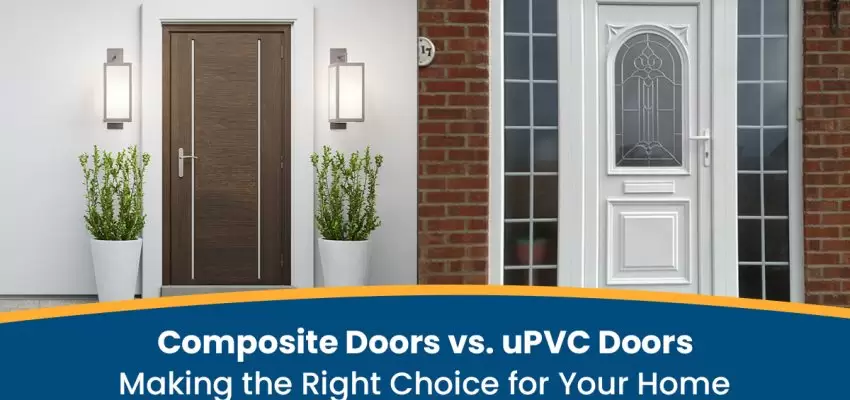
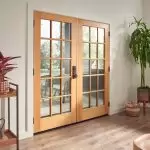
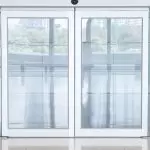
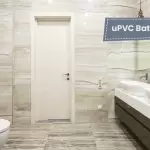
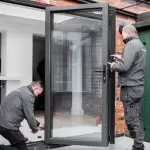

















Post A Comment